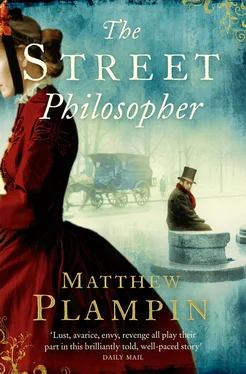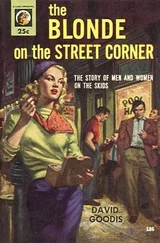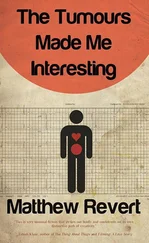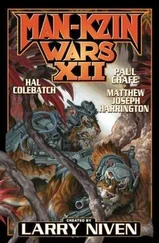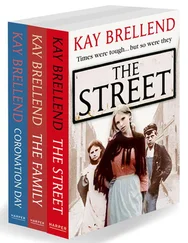There were some distant screams as a warhorse leapt from the foam close to the soldiers’ wives, trampling several of the cholera cases as it galloped off into the landing zone. The pair, who had by now reached the chest, both looked around to find the source of this sound, giving Kitson his first proper sight of their faces. He caught his breath: the woman was Madeleine Boyce. Grinding out his cigar on the navy rope, he got to his feet and walked towards them.
Mrs Madeleine Boyce was a lady of considerable reputation. Although only a shade above twenty, her fame as a beauty was already well established. That afternoon, as ever, her clothes were immaculate; a grey silk dress with a dark blue bonnet and cloak, unostentatious but radiating quiet expensiveness. Her cheeks bore the slightest flush from the sharp sea wind and the cold spray it carried. A few strands of dark hair had escaped from under her bonnet, and trailed across her cheek. Seeing Kitson approach, she smiled warmly.
‘Mr Kitson! What a pleasant surprise!’ Her voice, even when raised against the bustle of the beach, was soft, with the light accent of a Frenchwoman who had been among the English for many years. She gestured at the activity around them. ‘How extraordinary all this is!’
Kitson returned her smile, marvelling at her relaxed demeanour. Does she have the faintest notion, he wondered, of the difficulties her presence here will cause? ‘It is remarkable, Madame , truly remarkable, what wonders can be achieved by our modern armies. Why, King Agamemnon himself would gape with awe at the sight before us today. That so many thousands of fighting men can be landed, and in so short a time, quite amazes the mind.’
He glanced at her companion. The fellow was young also, a number of years younger than Kitson himself, certainly no more than twenty-two or -three. His wide, guileless face was clean-shaven, his skin tanned and unlined, his posture straight–this was no veteran of the staging post at Varna. He wore a black velvet jacket that was not only unsoiled, but also reasonably new and in good repair; a soft, broad-brimmed felt hat in a deep shade of green sat upon his head, and long, light brown curls were tucked behind his ears. The leather folder, now under his arm, was plainly an album of drawings and sketches. There could be no doubt who he was. Kitson had located Mr Styles.
‘Allow me to introduce myself, sir,’ the young man said, extending his hand, ‘Robert Styles. Pleased to make your acquaintance, Mr Kitson. Mr O’Farrell assured me that you would be here to meet me, even if Mr Cracknell was indisposed.’
Kitson took Styles’ hand. The skin was oddly smooth against his own callused palm. Standing there, exchanging pleasantries with a fashionable lady and an artist, he was struck by a strange, momentary sense of familiarity, as if his old life in the salons and picture galleries of the Metropolis had somehow followed him to the shores of the Black Sea. ‘Welcome to the Crimea, Mr Styles. May I say how glad I am that you are joining us, sir. Your efforts will doubtless enrich our coverage of the coming conflict enormously.’
Styles smiled nervously. ‘I only hope I do not disappoint, Mr Kitson. Much faith has been placed in me, it seems.’
‘You are too modest, Mr Styles,’ interjected Mrs Boyce gently. She met Kitson’s eye. ‘He is a man of true talent, Mr Kitson. Whilst we were on board the Arthur , he took several studies of me, all quite excellent.’
‘Really, Madame ?’ Kitson looked at the illustrator. Styles was blushing fiercely, intensely pleased by Mrs Boyce’s praise. It was clear enough what had transpired between them. Madeleine Boyce conquered fellows like this Styles without even properly realising that she was doing it. Kitson almost cursed aloud: here was yet another complication to consider. So much, he thought, for my optimism about the arrival of Mr Styles. ‘Is that where you first met one another, may I ask? On the Arthur ?’
Styles nodded. ‘The vessel made a stop at Varna, sir, and Mrs Boyce came aboard. We were introduced soon after.’
‘Indeed, Mr Styles. What serendipity.’ Kitson turned back to the officer’s wife. She had removed one of her gloves and was idly studying the exposed hand. ‘Well, I must say that it is good to see you again so soon, Madame . We poor Courier scribes were resigned to meeting you next upon English soil.’ He cleared his throat pointedly. ‘Mr Cracknell will be especially gratified, I’m sure.’
Suddenly self-conscious, Mrs Boyce pulled her glove back on. ‘And how fares your good senior? He is well, I hope?’
Styles was listening very closely, his brow furrowed. Our young illustrator is no fool, thought Kitson. He saw the change that came over her when I mentioned Cracknell’s name. ‘He perseveres, Mrs Boyce, in his usual manner. His, ah, inexhaustible passion for our task continues to inspire all in his orbit. Myself in particular.’
She smiled at this reply–not the confident smile that charmed and dazzled so many, but a genuine, involuntary expression of deep delight. Kitson looked away.
A small mule-cart was weaving slowly through some Commissariat tents pitched at the rear of the landing zone, heading in their direction. It was driven by a stout infantry sergeant, with a private sat at his side. The brass regimental number on the front of their shako helmets was just visible: these soldiers were from the 99th Foot.
‘I see that your escort approaches, Madame ,’ Kitson observed, unable to keep a note of relief from his voice. ‘The Lieutenant-Colonel will be most pleased to learn that you have arrived without mishap.’
The dreamy smile vanished. Mrs Boyce inclined her head stiffly in reluctant acknowledgement of her husband’s existence.
‘And we must leave you now, I’m afraid,’ Kitson added apologetically. ‘There are duties we must perform, and certain facts of our present situation with which Mr Styles here must be familiarised. I feel sure, however, that we will encounter one another again in the near future.’
Farewells were exchanged–rather hastily, as Kitson wished to avoid being caught conversing with Mrs Boyce by one of her husband’s non-commissioned officers. It would be reported, various assumptions would be made, and trouble would surely follow. He was starting to feel that trouble was something with which the nascent Courier team was already too familiar.
Madeleine watched the newspapermen walk away across the stones, taking care to give the cart a wide berth. A minute later, the modest vehicle pulled up close to where she stood. The squat brown mules were shaking their heads and braying, unsettled by the sounds of the teeming landing zone.
‘Mrs Boyce?’ said the sergeant. ‘We’re ’ere t’collect you, ma’am.’ She nodded absently. The two soldiers climbed down from the cart and started towards the chest.
Turning away, Madeleine gazed inland, past the beach to the farmlands beyond. ‘ Je suis ici , Richard,’ she whispered, ‘ je suis ici .’
2
More cholera cases were being carried down towards the sea from the camps, bound for the Arthur . Kitson and Styles pressed themselves against a row of ammunition crates to let them pass. The men already seemed beyond all help, flies clustering around their mouths and eyes in black knots. The illustrator felt a clammy nausea close around him. He was not yet used to such sights.
The new colleagues walked on through a copse of short, small-leafed trees and out into a broad expanse of farmland. An undulating quilt of lavender and wheat stretched away to the horizon, dotted with farmhouses, fruit orchards and wide-bladed windmills. A few rays of sunlight broke through the clouds, dappling the landscape beneath. Soon the diseased soldiers were left behind, and Styles began to recover himself. The Crimean countryside was a welcome change indeed from the open sea, and seemed remarkably peaceful. Even the mass of white military tents pitched off to the east looked like the site of an enormous fair. Red-coated infantry drilled in long lines, the shouts of their sergeants mingling with the jaunty tunes of regimental bands, and the clanking of countless pans and kettles.
Читать дальше
